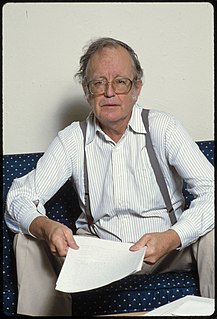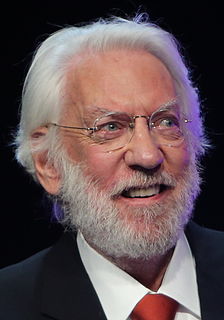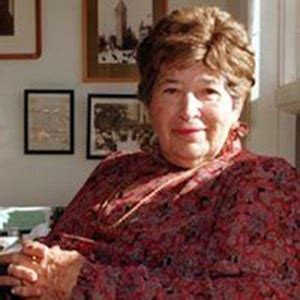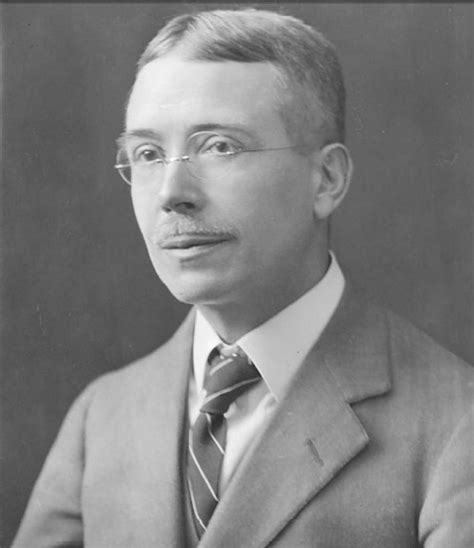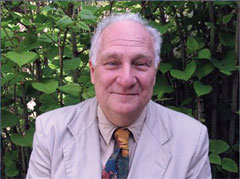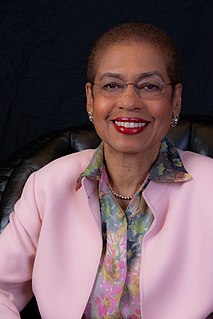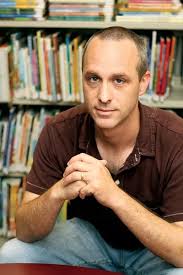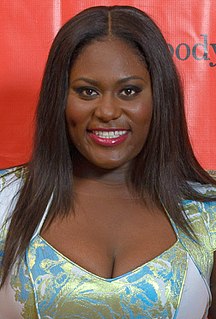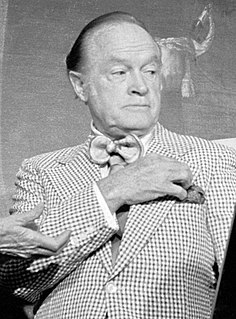Top 1200 Middle English Quotes & Sayings - Page 15
Explore popular Middle English quotes.
Last updated on April 21, 2025.
I travel up and down the country and I've been all around the middle of America for many years. Middle America is not one big mass of people with a proverbial beer in its hand, keeping the country down. That is not my experience of it and I don't labor under that misconception. And we have a long tradition of coming together through music in our country.
English Bohemianism is a curiously unluscious fruit. ... Inside this hothouse, huge lascivious orchids slide sensuously up the sweating windows, passion-flowers cross-pollinate in wild heliotrope abandon, lotuses writhe with poppies in the sweet warm beds, kumquats ripen, open and plop flatly to the floor-and outside, in a neat, trimly-hoed kitchen-garden, English bohemians sit in cold orderly rows, like carrots.
The wedding is the chief ceremony of the middle-class mythology, and it functions as the official entrée of the spouses to their middle-class status. This is the real meaning of saving up to get married. The young couple struggles to set up an image of comfortable life which they will be forced to live up to in the years that follow.
If you're going to compare a middle-income black kid with a middle- income white kid, and, say, you control for family background, family education, and family income, and if this middle-income black kid doesn't score as well as the white kid on the test, then I say, look, you haven't taken into consideration the cumulative effect of living in a segregated neighborhood and going to a de facto segregated school. You're denying a position at Harvard or some other place to a kid that really could make it. That's why I support affirmative action that's based on both class and race.
Trevor realized that the odd thing about English is that no matter how much you screw sequences word up up, you understood, still, like Yoda, will be. Other languages don't work that way. French? Dieu! Misplace a single le or la and an idea vaporizes into a sonic puff. English is flexible: you can jam it into a Cuisinart for an hour, remove it, and meaning will still emerge.
We're bankrupting our country and we have an empire that we're trying to defend which costs us $1 trillion a year. And the standard of living is going down today. It's going down and the middle class is hurting because of the monetary policy. When you destroy a currency, the middle class gets wiped out.
Christian Science has always appealed to the middle-classes and the upper middle classes. In part, this is because it requires a certain amount of education to study 'Science and Health' to the degree that Christian scientists do. It's not an easy book to read! It's 700 pages, and it's written in a nineteenth-century manner and diction.
The arrival of the Barbary pirates radically changed English attitudes. Instead of patriotic pirates plundering foreign cargoes and bringing them homes to enrich their countrymen, the 'Turks' were in the usual Mediterranean business of slave-raiding - and now the English were the victims. The West Country men suffered the heaviest, and did not appreciate the irony. The Newfoundland fishery, dominated by Devon ports, lost at least 20 ships in 1611 alone.
I myself have not met a self?confessed liberal since the late fifties (and even then it was a tacky thing to admit, like coming from the middle class or the Middle West, those two gloomy seedbeds of talent), yet hardly a day passes that I don't read another attack on the “typical liberal” — as it might be announcing a pest of dinosaurs or a plague of unicorns.
One of the things I really worry about is that if you don't see middle class wage growth, if you don't see the economy in certain areas of the country, the middle part of the country, starting to come back in the same way that it's doing especially well, let's say, in California or New York, then people are going to become politically frustrated.
When I do a film, the days before or the night before, I throw up. Sometimes it's just in my mouth and I swallow it back, but sometimes it's real. Whatever it is, it's hard. I don't do the first five or ten minutes of my character's appearance in a movie until the middle of the shooting schedule because I don't want him to be defined by my nervousness. So, we do the middle of the picture first.
To be ordinary is the greatest virtue - because when you are just ordinary, nothing to claim, of this world or that, the ego disappears. The ego feeds on imbalance, the ego feeds on extremes. The ego lives on the polarities - in the middle it disappears. And in every area, in every direction of life, remember this: just stop in the middle and soon you will find the mind has stopped, the ego has stopped. Nothing to claim, it disappears. And when it disappears you have become virtuous. Now the door is open for the divine. In the middle you meet him; at the extremes you miss.
I don't think it is always necessary to take up the anti-colonial -- or is it post-colonial? -- cudgels against English. What seems to me to be happening is that those people who were once colonized by the language are now rapidly remaking it, domesticating it, becoming more and more relaxed about the way they use it -- assisted by the English language's enormous flexibility and size, they are carving out large territories for themselves within its frontiers.
Joyce's writing in Dubliners contains some of the most unshowily beautiful sentences in the English language. I learned from him that if you write a good, clean line of English, you can get under a reader's skin. The reader won't even know why, but there you are. Didion, Berger, the many others I mentioned above, and many, many poets I haven't mentioned. Writers of this calibre are the moving targets the rest of us are always chasing.
One of the producers, Wonjo, was an amazing interpreter. I don't think we really knew how it was going to work at the beginning. Yet it was something that a couple of days into it seemed so seamless and it wasn't something that we noticed or thought about. A couple of times I cornered him and forced him to speak English but we didn't speak much English at all. That said, I don't think anything was ever lost in translation. It was all very easy.
For most of us the rules of English grammar are at best a dimly remembered thing. But even for those who make the rules, grammatical correctitude sometimes proves easier to urge than to achieve. Among the errors cited in this book are a number committed by some of the leading authorities of this century. If men such as Fowler and Bernstein and Quirk and Howard cannot always get their English right, is it reasonable to expect the rest of us to?
An important United Nations environmental conference went past 6:00 in the evening when the interpreters' contracted working conditions said they could leave. They left, abandoning the delegates unable to talk to each other in their native languages. The French head of the committee, who had insisted on speaking only in French throughout the week suddenly demonstrated the ability to speak excellent English with English-speaking delegates.
I've played English a number of times, and used an English accent a number of times, so it becomes a little bit of an obstacle course to go, "Oh, that's teetering into Captain Jack-ville," or "This is teetering into Chocolat or Wonka." You've got to really pay attention to the places you've been. But, that's part of it. That's the great challenge. You may get it wrong. There's a very good possibility that you can fall flat on your face, but that's a healthy thing for an actor.
I let myself go at the beginning and write with an easy mind, but by the time I get to the middle I begin to grow timid and to fear my story will be too long. . .That is why the beginning of my stories is always very promising and looks as though I were starting on a novel, and the middle is huddled and timid, and the end is...like fireworks.
Someone once said that middle age is like rereading a book that you haven't read since you were a callow youth. The first time around you were dazzled by impressions, emotions, and tended to miss the finer points. In middle age you have the equipment to see the subtleties you missed before and you savor it more slowly.
Man no longer lives in the beginning--he has lost the beginning. Now he finds he is in the middle, knowing neither the end nor the beginning, and yet knowing that he is in the middle, coming from the beginning and going towards the end. He sees that his life is determined by these two facets, of which he knows only that he does not know them
This book is intended for use in English courses in which the practice of composition is combined with the study of literature. It aims to give in a brief space the principal requirements of plain English style. It aims to lighten the task of instructor and student by concentrating attention (in Chapters II and III) on a few essentials, the rules of usage and principles of composition most commonly violated. The numbers of the sections may be used as references in correcting manuscript.
If I hurt somebody's feelings, I go right to them and talk to them and explain what happens. Sometimes I'm mad at myself because I left a pitch in the middle. It's big when you leave a pitch in the middle. When I make that mistake, it's frustrating for me. I have to think about what I did wrong and go to the next step.
One of the things I most wanted to do in New York was to go to a performance by Martha Graham. For me, she's Miss Mattie T. Graham. I thought she needed something in the middle. If she's going to be an honorary Southerner, she's got to have something in the middle, so I just put an initial T and a period.
I agree that income disparity is the great issue of our time. It is even broader and more difficult than the civil rights issues of the 1960s. The '99 percent' is not just a slogan. The disparity in income has left the middle class with lowered, not rising, income, and the poor unable to reach the middle class.
I'm not a political person. I don't understand politics, I don't understand the concept of two sides and I think that probably there's good on both sides, bad on both sides, and there's a middle ground, but it never seems to come to the middle ground and it's very frustrating watching it and seemingly we're not moving forward.
The answer to this riddle has a hole in the middle, And some have been known to fall in it. In tennis it's nothing, but it can be received, And sometimes a person may win it. Though not seen or heard it may be perceived, Like princes or bees it's in clover. The answer to this riddle has a hole in the middle, And without it one cannot start over.
You get another person who operates only in an African language and there are many persons who operate only in African languages; he or she is excluded from all the goodies that come with English. And even in terms of justice, law codes, the legal system. A person who does not know English in Africa is excluded from that system because he can only operate through acts of translation.
Climate helps to shape the character of peoples, certainly no people more than the English. The uncertainty of their climate has helped to make the English, a long-suffering, phlegmatic, patient people rather insensitive to surprise, stoical against storms,. slightly incredulous at every appearance of the sun, touched by the lyrical gratitude of someone who expects nothing and suddenly receives more than he dreamed.
I think the ultimate challenge is to have some kind of style and grace, even though you haven't got money, or standing in society, or formal education. I had a very middle, lower-middle class sort of upbringing, but I identify with people who've had, at some point in their lives to struggle to survive. It adds another color to your character.
I'm someone who thinks that the world would be a better place if there was a big middle class. I mean, middle class is peace. In a perfect world, everybody would have enough to eat and we'd be living in security. It's obvious. I'm very happy to pay my taxes and all that. I would say I'm more of a Social Democrat.
English is, from my point of view as an Americanist, an ethnicity. And English literature should be studied in Comparative Literature. And American literature should be a discipline, certainly growing from England and France, Germany, Spain, Denmark, and the Native traditions, particularly because those helped form the American canon. Those are our backgrounds. And then we'd be doing it the way it ought to be done. And someday I hope that it will be.
A sannyasin is one who has no prejudices, who has not chosen any ideology to be his own, who is choicelessly aware of all that is. In this choicelessness you will be in the middle. The moment you choose, you choose some extreme. The moment you choose, you choose against something; otherwise there is no question of choice. Being in a choiceless awareness is another meaning of being in the middle.
I got sent off to my grandmother's for five months and watched a lot of TV and had a lot of grilled cheese with butter on it - because she was English and put lots of butter on everything - and yogurt. The English are big on dairy products, you know? I'd have an earache, and she'd be like, "Here, have some milk." Wonderful woman, but she had kind of screwed-up nutrition ideas.
But I don't know, maybe it's just as well I never got there. I dreamed about it for so many years. I used to go to English movies just to look at the streets. I remember years ago a guy I knew told me that people going to England find exactly what they go looking for. I said I'd go looking for the England of English Literature, and he nodded and said: "It's there.
If one takes pleasure in calling the gold standard a "barbarous relic," one cannot object to the application of the same term to every historically determined institution. Then the fact that the British speak English - and not Danish, German, or French - is a barbarous relic too, and every Briton who opposes the substitution of Esperanto for English is no less dogmatic and orthodox than those who do not wax rapturous about the plans for a managed currency.
With support jobs moving to China and India, it's not surprising that English-speaking countries' top frustration revolves around the difficulty of understanding customer service representatives. However, even if the level of customer service is exceptional, the extent to which poorly-understood accents trump quality of service speaks to English-speaking customers' growing intolerance of non-native speech, more so than in other countries.














